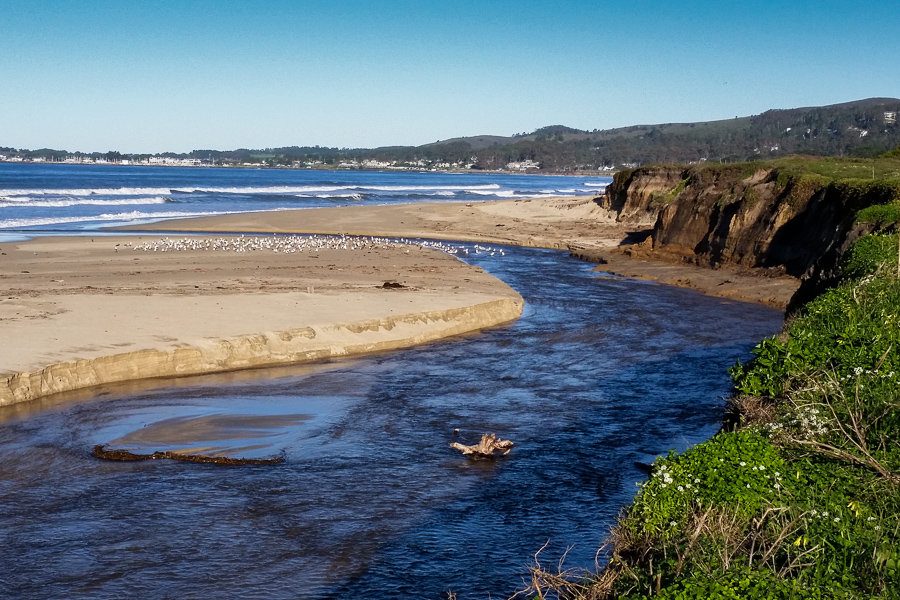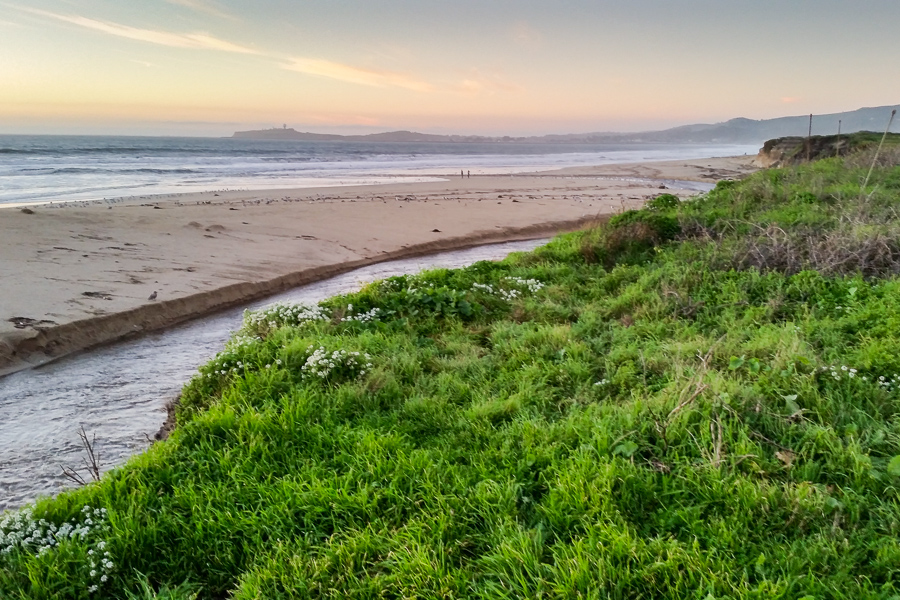Vacation. It always makes me a little crazy. I need stuff to do. And even though the temperature has plummeted to -12°C overnight, that means going outside and not sitting at my computer.
When Parker and I get too cold, I'll start reading these articles:
And because my (irritated) Euchre coach demands it, I'll review (one more time) Harvey Lapp's Ten Commandments of Euchre.
As of Saturday, Chicago set a new record in gloominess by having no sunshine at all for 17 days in December:
Low pressure passed to our north and a cold front swept through our area from the west Saturday. Winter Weather Advisories for 50 to 200 mm of snow were in place from northeast Nebraska through northern Iowa and southern Minnesota into northern Wisconsin and Upper Michigan, while cloudy skies and widely scattered light rain showers prevailed across the Chicago area. But those clouds cut off the sun – Frank Wachowski’s sunshine recorder measured no sunlight – making Saturday the record 17th day this December with zero percent sunshine – the old record was 16 zero percent sunshine days registered on 4 separate years – the last in 2009.
The clouds have persisted into the nighttime hours as well – trapping the nighttime heat and keeping our overnight lows so far this month 4.7°C, and boosting our overall temperature average to 3.3°C above normal. These relatively mild temperature should be reflected in lower December heating bills.
The sun is peeking out today after being out all day yesterday.
And still no snow this month, nor any in the forecast. Weird. In fact, this December's weather has been much more like a typical November in Chicago: gloomy and cold, but not that cold, and not that snowy.
We'll get snow, though. Oh yes. We will...
...I stopped here one more time this morning:

At the moment Chicago's weather isn't too bad. At the moment. But it's still nothing like this.
By the way, I've actually reduced the saturation in this photo a bit. The sun was directly behind me and relatively low on the horizon, so the colors in this shot are very close to what I saw.
Chicago has had its least snowfall—specifically, just a trace with nothing measurable—in the past 102 Decembers:
Only three Decembers have recorded this little snow since records began in 1884!
1889, 1894 and 1912 hold those numbers.
No snow is forecast through the end of the year, but it will be a chilly -9°C on New Year's Eve.
And I'm pretty sure no one in Chicago wants a repeat of last year.
Yesterday, the majority of weather models forecast a major winter storm over Chicago that was going to snarl traffic, ground airplanes, and make life a living hell for several friends of mine. One of the models had a slightly different prediction, however. Looks like the minority opinion was right:
The northbound storm driving Chicago’s Christmas Eve 2014 rainfall is going to have a hard time producing the kind of cooling which would support big snow accumulations. It’s been clear from the range of forecasts covering aspects of the storms development and movement that this system’s ability to generate snow may well be limited by the warm environment in which it springs to life. While bursts of wet snowflakes may well wind up in Wed afternoon and evening’s precipitation mix, it’s hard to see how snowfall of an intensity to do more than just dust the warm ground or produce minor transitory accumulations, expecting more of this storm will be a tough sell.
Because the system part of an environment awash in mild air, Wednesday’s Christmas Eve storm is in a position in which it must generate its own cold air through storm dynamics (i.e. the ascension and resultant cooling of air brought on by the storm’s intensification). Such cooling may well happen to Chicago’s east from sections of Indiana near Valparaiso north into Michigan City, Benton Harbor, Muskegon, etc–regions likely to sit beneath the storm’s strongest dynamics and, therefore, the area most likely to experience the kind of cooling which may take rain over to snow long enough to produce more than the dusting to 2″ accumulations predicted by our team to occur in the greater Chicago area.
In other words, Chicago will be wet and cold, but not snowy. Life goes on.
Of course, none of this would affect me today, because I'm back here for the holiday:

Today it's misty and damp on the peninsula, so I might not hit my Fitbit goal today. But I'm still warmer than I'd be back home.
If you live in Chicago, your gloominess may have something to do with the cloudiest December in 39 years:
The full month [of December 1975] managed just 19% of its possible sun that year–the same lackluster sunshine allotment on the books in 2014 as we move the final days of December. Failure to boost that pitifully limited tally between now and the month’s close at midnight this coming Wednesday, would put the Chicago area in line for a possible new record.
There have been cloudier months. Our veteran Chicago climate guru and official National Weather Service observer Frank Wachowski at Midway Airport since the 1950s, reports Nov 1985 managed just 16% of its possible sun making it this area’s cloudiest month since sunshine records began here in 1893.
We're now in our 13th day without sun. Thirteen days, no sun. And then next week, this:
Big changes again loom. Temps appear poised to tank with arctic air’s reappearance later this coming week extending into the closing days of 2014 in the week which follows. Signaling the change is warming in the arctic. Huge pools of “warmer” than normal air are predicted to assemble through the atmosphere over Alaska and Greenland in the coming 6 to 10 days creating atmospheric “blocking” there. You can see them in the orange-hued areas on this hemispheric forecast generated by the National Weather Service’s GFS global forecast model. That the global models of other national meteorological organizations are producing strikingly similar forecasts reinforces confidence in the forecast of change.
At least, if it's that cold, it will probably be sunny.
The trouble with holiday parties on Wednesday is that you have to function on Thursday. So, to spare my brain from having to do anything other than the work-related things its already got to do, here are things I will read later:
All for now.
Very busy today; less so the rest of the week. So after I'm done with this deliverable today I'll read these:
Back to the mines...
It's 7:35, and pitch black outside. When people talk about permanent daylight saving time, because they don't want to switch clocks twice a year, they should consider that France is an hour ahead of the "correct" time zone for its longitude and therefore has sunrises at 8:30 in the morning this time of year.
If there were daylight right now, I'd upload a photo of all the airplanes taxiing past my hotel window. It's kind of cool. Tomorrow, when I can sleep in.
December 2014 opened the coldest in 118 years in Chicago, but all the forecasts point to a huge warm-up over the next two weeks:
he scope of the warming being predicted is really something. The global scope of the milder than normal temps is evident from the depiction at the top of this post. The Weather Service’s GFS model, Environment Canada’s GEM ensemble and the European Center’s deterministic and ensemble model are all on board with the onset of a significantly warmer than normal pattern. This doesn’t mean there won’t be some cool days intermingled with the “warmth”. There actually will be. But, these forecasts speak to the overall pattern. Each of these predictions suggest a major pattern about-face heading through mid-December–a radical change from the arctic chill which has dominated the past three months producing the 11th coldest meteorological autumn (i.e. Sept through Nov period) on the books and the 8th coldest November in 143 years of official observations here.
Are prospects for winter cold dead? Don’t count on it. High latitude blocking, a major factor in the cold with which the current season has begun, has been a factor in almost all of our recent winters producing the high amplified (i.e. “buckled” or “wavy”) jet stream patterns which encourage arctic air to dive into the Lower 48.
But not quite yet, it seems. The next week will be seasonable, with temperatures right around freezing. The warm-up, if it occurs, is more than a week away.
On the other hand, I'm in Louisiana tonight, where it's 12°C—too chilly for a long walk in the light sweater I've got on, but a lot warmer than back home. So I'm going to have a look at the Mississippi, then hustle back inside for a pint of something.